Test on Mac
Don’t bother with Mac Simulators. Instantly test your websites on the latest browsers on macOS online. Test on real macOS devices now!
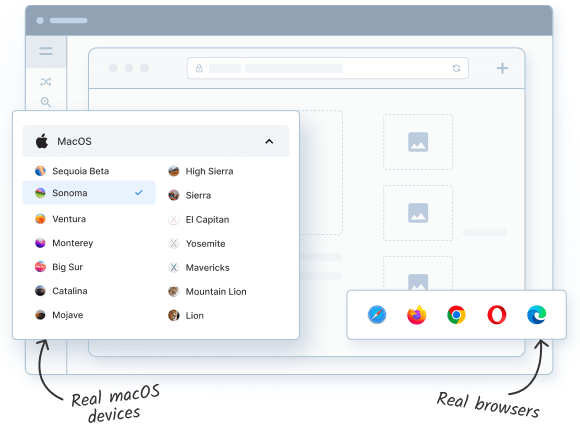
Trusted by more than 50,000 customers globally
Features
Real Mac Devices
We provide real macOS devices (Monterey, Ventura and Sonoma, macOS Big Sur, Catalina, Mojave, Sierra, Yosemite, Lion, Snow Leopard, OS X, etc.) for accurate results. Don’t compromise with Mac Emulators & Simulators for testing.
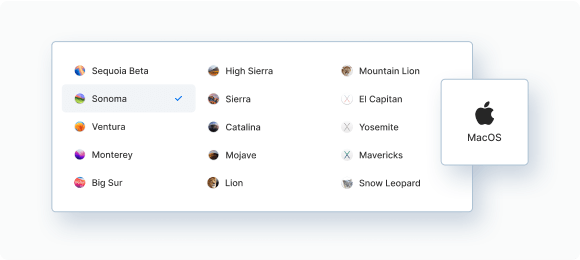
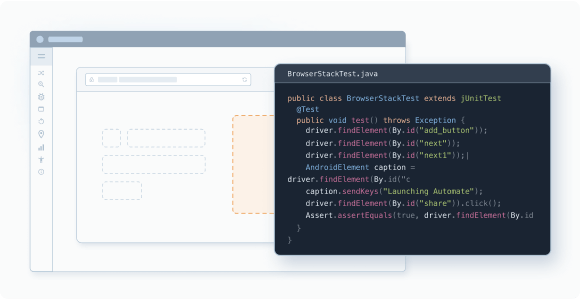
Test on dev environments
Test public & internal websites on development environments seamlessly, without the hassle of setup configuration.
No VMs or setups
Start testing your website on a remote Safari browser using our macOS devices. No VMs to be maintained, no software to be installed; you just need a browser and the Internet to use BrowserStack. Say goodbye to Mac simulators!
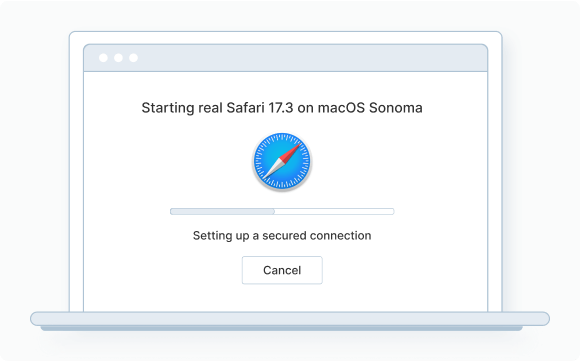
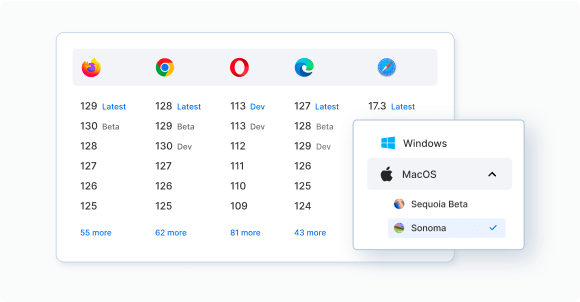
3000+ browsers and devices
Test on a range of browsers like Safari, Chrome, Firefox, Edge, IE and more on Windows and macOS platforms online.
MacOS Versions we support
List of Mac OS Versions available for testing on.
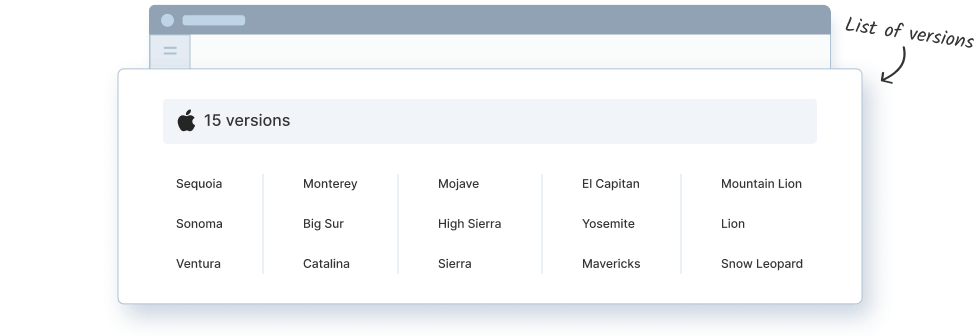
Frequently Asked Questions
As of February 2025, macOS, now known as OS X is the fourth most used operating system worldwide. It is also the second most used desktop operating system in the world.
Naturally, any website that wants to cater to a wide cross-section of global users will have to be optimized for multiple operating systems. macOS’s market share makes it a major player in the operating system game. Websites cannot afford to not work flawlessly on macOS, because if they don’t, they will miss out on significant traffic and revenue coming from macOS users.
QAs and developers should test their site on macOS online from the early stages of development. As soon as the website has taken basic shape, and can be run on a browser-device-OS combination, it should be tested on real macOS. This helps to detect bugs from the early stages, and prevent major issues from popping up later in the development lifecycle.
For QA teams that do not have access to an up-to-date on-premise lab carrying real Macbooks with macOS installed, testing on macOS online (via a cloud-based platform) is an ideal solution.
The easiest way to perform website tests on Mac devices is to test on actual MacBooks (latest and older versions). Accomplishing this will require two things:
- An on-premise device lab stocked with the latest and older Mac devices. The lab would have to be continuously updated with new devices that are installed with newer versions of macOS.
- A cloud-based testing platform that lets QAs access real Mav devices (with macOS installed) via the internet anytime, from anywhere.
A macOS simulator is a software tool that mimics the macOS environment, allowing developers to test applications without needing a physical Mac, providing a virtual experience of the operating system.
Testing on Real Device Cloud, is by far much more reliable than testing on macOS Simulators as you get to test on real Mac devices. This helps consider the hardware and software nature of the device along with the native features of the device.
Websites must be tested on actual macOS to be optimized for Apple desktop users.
BrowserStack allows you to test on real macOS devices seamlessly and you get more accurate test results on real device cloud in comparison to Emulators or Simulator by testing under real user conditions.
No macOS Simulators and Emulators are not reliable, since they do not consider hardware and software nature of the device. By virtue of how macOS simulators function, they cannot mimic multiple real-time features like a device’s battery life, network connectivity, GPS sensors, natural gestures, touchscreen pressure, etc.
Real device cloud is a better alternative to testing on variety of real macOS devices and browsers without actually owning or maintaining them. BrowserStack’s real device cloud allow you to test on real macOS devices on different browsers so that you can test under real user conditions for accurate test results.
BrowserStack provides instant, cloud-based access to real macOS anytime. Developers and QAs simply have to sign up, choose the real macOS version they want to test on, and start testing.
Testers do not have to worry about buying or updating devices, browsers, or operating systems. They can also leverage numerous useful features that help with the QA process:
- Local Testing feature to test websites in development and staging environments.
- Screenshot testing to rapidly test designs and layouts by generating screenshots on 3000+ mobile and desktop browsers with a click. Perfect for testing responsive web design.
- Geolocation Testing to test how the website behaves in different locations using GPS and IP geolocation.
- Pre-installed developer tools for easier testing and debugging.
BrowserStack offers a wide range of macOS versions for testing purposes. The macOS versions available are macOS Sequoia, macOS Sonoma, macOS Ventura, macOS Monterey, macOS Big Sur, macOS Catalina, macOS Mojave, OS X High Sierra, OS X Sierra, OS X Yosemite, OS X Mavericks, OS X Mountain Lion, OS X Lion, OS X Snow Leopard.
Study the full list of browsers and platforms on BrowserStack.
